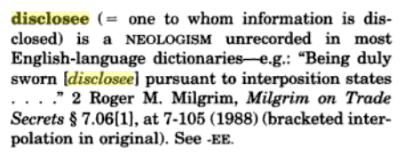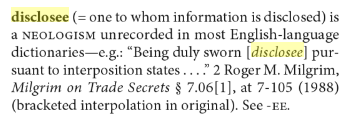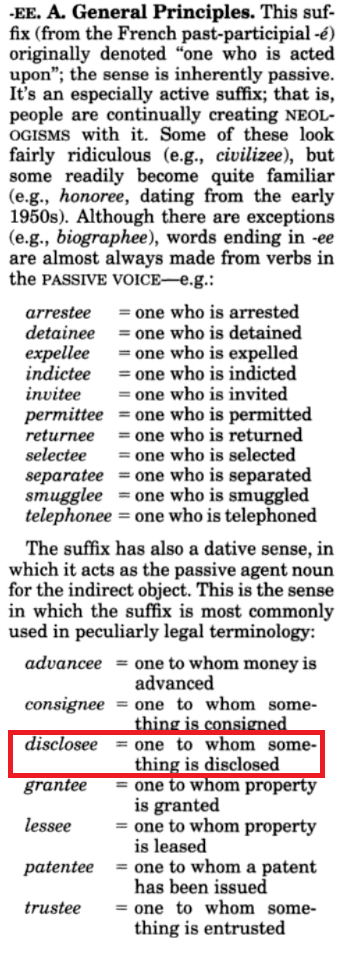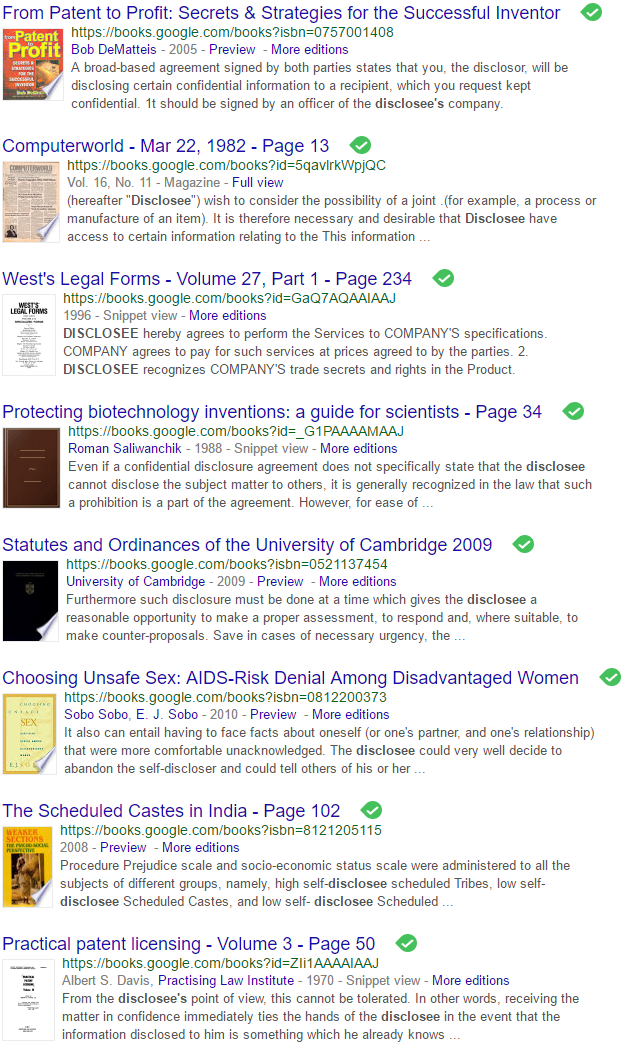I am working on a software application in which users have facts about themselves which they must disclose to their employer or to a regulatory body. We are pinning down terminology to use for the various aspects of the disclosure process.
In general, we have the concept of a "party" which identifies a unique entity -- possibly an individual, a firm, a regulatory body, etc. We are using "disclosing party" to refer to the user who discloses the fact, and "disclosure" to refer to the act of disclosing.
We need a good term to use for the party to which the facts are being disclosed.
I've consulted a variety of common English-language dictionaries (M-W, New OAD, American Heritage, Random House) and thesauruses (Roget's, Collins, Oxford), and so far I have the following under consideration (with reasons I'm not particularly happy with them in parentheses):
- Disclosee
(not a real word) - Recipient or Receiving Party (too general)
- Notified Party (implies past tense; the disclosure may not yet have occurred)
- Informed Party (also implies past tense; also potentially ambiguous meaning)
Example sentence (just following the rules!):
"The _____ must approve or reject the disclosure."
Is there a word for this? I would accept a standalone noun, or an adjective to pair with "party."




